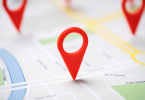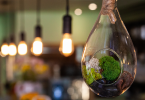For most of you, efforts on your digital strategy are limited to your marketing and guest interactions, but it’s evolved into something far more comprehensive over the years. Since the advent of POS in the late ‘90s, there has been a forced march towards proliferation as pertains to the digital tools a modern restaurant operation requires. Creating a digital strategy is as much a business plan item as it is a simple marketing tool.
While any arbitrary classification of the parts on the digital landscape will necessarily be flawed, we had to start somewhere. In order to demystify the various components of a good digital strategy we have identified the four basic categories of digital opportunity. We provide a brief description of each and examples of solid solutions you may actually already be using or considering.
Internal communication
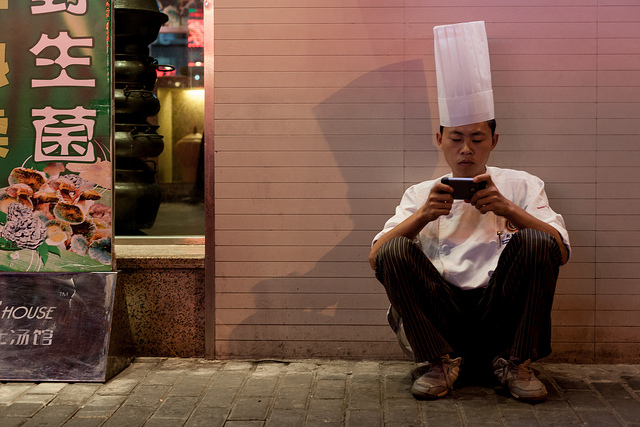 With the ubiquitous nature of smartphones, it might sound obvious that digital communication has reinvented the way we interact. Whether you use text, IM, a Twitter list or Facebook Messenger, you can’t deny that mobile devices and apps have revolutionized your internal restaurant communications. Not to mention ready digital photography from those phones. It’s crucial you have a coherent plan here. The real trick is balancing when to buy and when to take the free option. For communications, it could go either way.
With the ubiquitous nature of smartphones, it might sound obvious that digital communication has reinvented the way we interact. Whether you use text, IM, a Twitter list or Facebook Messenger, you can’t deny that mobile devices and apps have revolutionized your internal restaurant communications. Not to mention ready digital photography from those phones. It’s crucial you have a coherent plan here. The real trick is balancing when to buy and when to take the free option. For communications, it could go either way.
- Free tools like What’s App and Google Groups can be great, but you have to bend to their will. There is little customization or integration. However, they do give you a cost free tool to instantly communicate with your team. If you have enough consensus on your team they can work great.
- Paid apps are different. They are designed to solve your specific problem, communication in a restaurant. Tools such as LogBook from HotSchedules or RedEApp are engineered to fit restaurant profile. They are tailored to our quirks and are very effective at integrating large amounts of organized information.
Organizing your team around a central communications hub is just good business. The ability to deliver a direct message to every staff member, vendor or even guests is an incredible efficiency. If you embark on no other effort to embrace the current digital landscape this will improve your execution.
Marketing
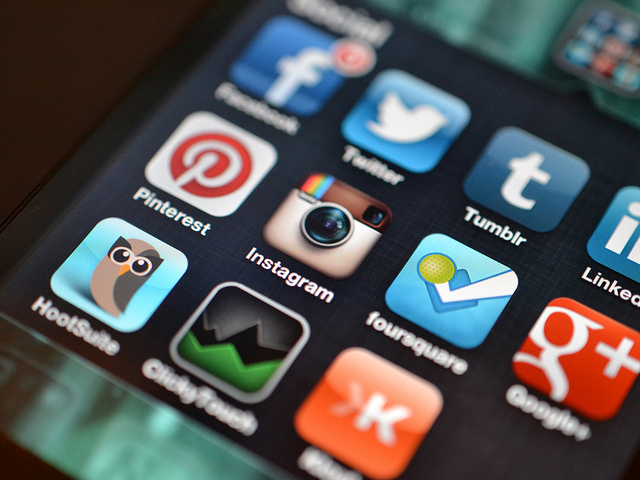 Clearly, this is where most of us consider our real “digital strategy” to reside. With the cultural explosion of social media, you have never had more effective (both cost and efficiency) tools to reach existing guest and introduce yourself to new ones. The key here is to not fall prey the time suck that these new tools can create.
Clearly, this is where most of us consider our real “digital strategy” to reside. With the cultural explosion of social media, you have never had more effective (both cost and efficiency) tools to reach existing guest and introduce yourself to new ones. The key here is to not fall prey the time suck that these new tools can create.
Also, don’t forget the legacy tools that are your website and email. They continue to be effective methods for reaching out to guests and giving them a reason to return. Identify a couple of key places to put your effort and stick to them. It will work and you won’t get caught in the crazy race to nowhere.
You can create a very effective social media marketing plan for little money and nominal effort. The real trick is discipline. It takes just 15 minutes a day and an occasional instant response to create and maintain a wonderful digital reputation.
This is especially true for a small bar or restaurant. If you focus on your Facebook page and claim your Yelp profile, you will have a solid start to social media. I also suggest a tool called HooteSuite. This helps you monitor any conversation happening around the web with respect to your restaurant. It also allows you to schedule content to post in advance, thus compressing your effort to maintain your social media.
A further key is to coordinate all your social media with your website for consistency. Remember, a quick 15 minutes a day and the occasional mobile response and you will be accomplishing more with digital marketing than most operators.
Additionally, your website remains a key place, albeit one that doesn’t need much care and feeding. The role of the website has diminished, but you can’t ignore it. Eighty percent of your guests have checked a website for more information about a restaurant before visiting. Maintain it, so it is accurate and relevant.
New site building technology is easy to setup, deploy and maintain. Using a site template from the various services like Wix or Squarespace can have you up and running in minutes and simplify the ongoing work. They will also insure that you have a mobile optimized site, where 70% of your guests are viewing information about the restaurants they visit.
Finally, email still rocks the house when it comes to marketing. Think in terms of likes on Facebook. You cannot guarantee that your posts on Facebook are being viewed and you can’t really track the interaction. However, with email, you own the contact and can track if they read your email, shared it or clicked through. This is so much more direct and efficient than Facebook. In fact, use Facebook to gather email addresses as much as you use email to gain Facebook followers.
Business processes
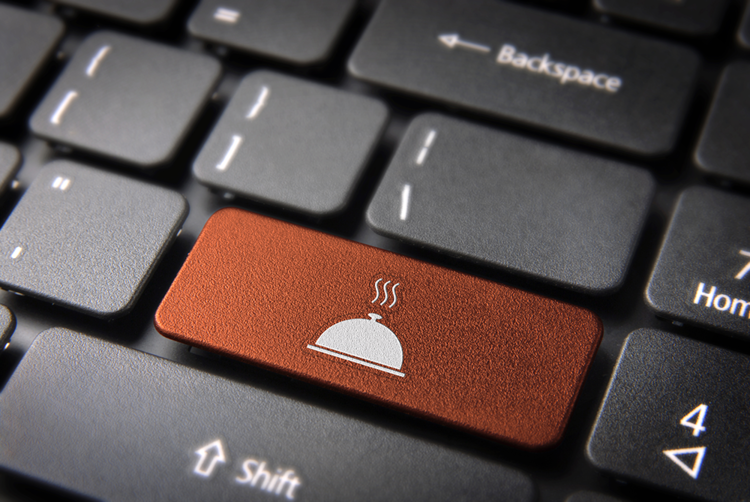 Point of sales (POS), inventory/cost controls and scheduling are the most prevalent uses of digital technology. Even if you are just using Microsoft Excel you are employing a digital strategy. So stepping up to a program that delivers a more comprehensive view of your business isn’t that much of a stretch. With today’s data analytics, you can see your business in ways our predecessors never imagined.
Point of sales (POS), inventory/cost controls and scheduling are the most prevalent uses of digital technology. Even if you are just using Microsoft Excel you are employing a digital strategy. So stepping up to a program that delivers a more comprehensive view of your business isn’t that much of a stretch. With today’s data analytics, you can see your business in ways our predecessors never imagined.
POS integration is one of the key opportunities here. These are software companies that build programs that leverage your existing POS to deliver powerful add on tools. They can interact directly with your POS and deliver inventory/business controls or dig deeper into your data analytics. If you aren’t already using one, we can’t understand why!
In addition to cost control, there are companies — like Upserve — whose software analyzes your POS results and identifies profound metrics about your best guests and staff performance. This is power we didn’t have even five years ago.
Not so new to the current technology is online scheduling. This technology, makes the scheduling process simple, intuitive and incredibly flexible. Companies like HotSchedules have elegant schedule solutions that deliver value to every participant in the schedule process. It makes the hard things about scheduling easy. Whether it’s managing various availabilities, schedule requests or shift swaps, it happens seamlessly and with you in control. Just the savings on labor cost make it worth the investment.
Guest facing technologies
 Here is where the fun starts. If you have followed any of our previous communications we constantly remind you there is a world of live content available via internet streaming. Add that to gaming, mobile loyalty and various entertainment apps and you have a dangerous mix of tons of things to offer but with no confidence it will work. There are, however, three basicsitems you should at least consider for your guest facing digital strategy.
Here is where the fun starts. If you have followed any of our previous communications we constantly remind you there is a world of live content available via internet streaming. Add that to gaming, mobile loyalty and various entertainment apps and you have a dangerous mix of tons of things to offer but with no confidence it will work. There are, however, three basicsitems you should at least consider for your guest facing digital strategy.
- Table side tablets for ordering and payment is the most exciting new advance in this sector, and can also be a powerful entertainment tool. Buzztime is a hybrid that includes both digital entertainment and tableside ordering. The mix of convenience and entertainment allows you to maximize the value of the investment. It also addresses our second guest facing digital strategy, digital signage. So it’s a three-for from Buzztime.
- Digital signage is an incredible tool that I would encourage EVERY bar owner to leverage. The problem in our industry isn’t enough willing guests to be influenced by a digital message board. The real problem is that restaurant managers don’t want to take the time to manage it. Well, I can’t let you off the hook. This is another incredibly useful tool, that with less than an hour a week, you can keep fresh, truly influence guest behavior and make your place more entertaining.
- Entertainment is the final leg of this interesting digital triangle. There is a lot of crossover between table side tablets, digital signage and guest entertainment. As we described a system like Buzztime combines all three. Another examples of this are new digital music choices like Rockbot, a wonderful digital jukebox system. Rockbot allows guests to purchase songs from their digital jukebox that you can curate and control. It also covers your BMI & ASCAP costs while giving you complete control on what cannot be played and when at your restaurant.
Much like the digital marketing, you can get sucked down a hole if you don’t carefully consider what you are doing with these technologies. When it comes to entertainment, it’s really difficult to draw a direct line to ROI. So, make sure you are convinced your guests will want whatever you choose. If you can’t revolve a night around it or don’t have guests clamoring for a solution, then it’s not a problem. Ask them what they would be entertained by and then make an effort to deliver.
Are you a leader, a follower or road kill?
Once again, we are being asked to lead the way in retail with all these new technologies. Whether it was the POS revolution in the late ‘80s or the flat screen TV explosion of the late 2000s, restaurant operators seem to always get forced to the times. That is why we are attempting to improve your focus on all these technology basics. It’s time we got ahead of the tidal wave of change and take control. A little bit of effort and planning and you can implement a system from all four categories and start seeing how it all works with your business.
The only real truth is that you don’t have a choice. Digital technology is reshaping everything we know in our culture and you can either lead, follow or get run over. I know you, and I know you don’t want to get run over, so choose to lead and consequently stay ahead.
Chef phone image by Jens Schott Knudsen
Tablet image by ebayink
Mobile app image by Jason Howie
This post originally published on The Rail.


